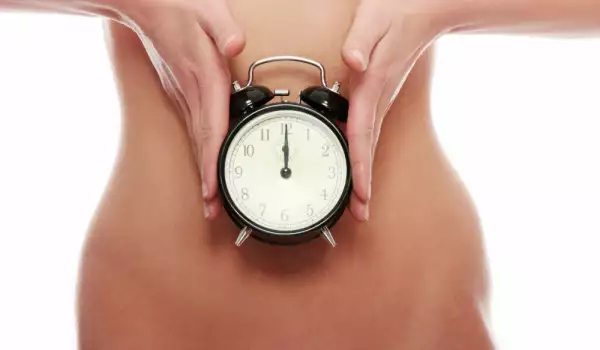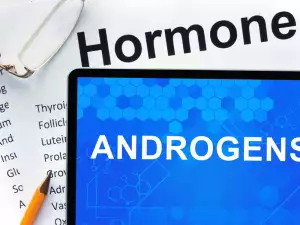Progesterone is a steroid hormone, which plays a role in pregnancy, the menstrual cycle and embryogenesis in humans. Progesterone belongs to a class of hormones called progestogens. They should not be confused with progestins, because they are synthetically produced progestogens.
Progesterone is synthesized in the adrenal glands, sex glands, brain and in the placenta during pregnancy. It prepares the lining of the uterus to accept the fetus and also controls the normal course of pregnancy.
Progesterone and estrogen are produced in the ovaries. Small amounts of progesterone are produced in the adrenal glands and testes.
Functions of progesterone
Progesterone plays the role of precursor to estrogen and testosterone, as well as to the adrenal hormones that regulate fluid and electrolyte balance, reactions to stress, blood pressure.

In the first half of the monthly menstrual cycle, estrogens normally prevail. After ovulation, the level of progesterone increases, it predominates in the second half of the cycle. If fertilization has not occurred, the pituitary gland sends a signal to stop the ovarian production of progesterone and within 48 hours, menstruation occurs.
Namely, progesterone produced by the corpus luteum does not allow uterine contractions to occur during fertilization, as it does during menstruation. As a result, the egg remains intact. Progesterone makes the endometrium soft and sponge-like, so that the fertilized ovum can be successfully attached. Progesterone is absolutely necessary for maintaining and supporting the pregnancy.
Progesterone increases base temperature, so that it can be measured by a thermometer, and give a signal that ovulation has occurred. Progesterone maintains base body temperature during the entire period of pregnancy.
Complaints as a result of hormonal imbalance affect absolutely all organs and systems in the body. These complaints can be numerous - water retention, headaches, pain and swelling of the breasts, irritability, fatigue, impatience, anger, crying and many others.
Progesterone and estrogen determine the mental status of women. The levels of these two hormones affect even the qualities of their character.

Benefits of progesterone
Generally, the effects of progesterone can be summarized as follows:
Progesterone helps the womb to mature, preventing the creation of excess tissue, has a good diuretic effect, mobilizing fluids (thus reducing bloating and water retention); enhances the effect of thyroid hormones, accelerating metabolism, acting to uncongeal the blood, improves mood; increases libido and sexual desire, prevents the development of breast cancer and uterine cancer.
Progesterone stimulates the formation of new bone tissues, which is a preventive measure against osteoporosis. It prevents excessive growth of breast tissue, which is a good prevention against fibrosis.
Progesterone levels
The amount of progesterone in the female body depends on which day of the menstrual cycle ovulation occurs (release of the ovum from the ovary). The beginning of the cycle is considered the first day of menstruation. From that day until ovulation, follicles are produced from the ovary which causes expansion of the lining of the uterus. After ovulation, the corpus luteum appears in place of the egg cell. It determines the levels of the progesterone hormone.

Progesterone is the hormone that stimulates the formation of male characteristics in the female character. The largest amount of progesterone accumulates if ovulation occurs immediately after menstruation.
If ovulation occurs on the seventh to ninth day of the menstrual cycle, then the amount of progesterone is at its optimal levels. It is thanks to this that women are attractive, sensual and feminine.
If ovulation occurs in the last days of menstruation, progesterone is not released at all. The levels of both estrogen and progesterone decline sharply in menopause. Progesterone decreases more sharply than estrogen hormones.
Progesterone deficiency
When estrogen dominates, a progesterone deficiency is observed. Depending on the degree of imbalance, the affected woman may experience one or more of the following symptoms: breast tenderness and premenstrual pain, painful menstrual periods and menstrual headaches, or irregular menstruation.
Other adverse occurrences are fibrosis, nervousness, loss of sexual desire, frequent headaches, increased frequency of urination, infertility, anxiety and panic attacks, increased cholesterol and blood pressure, breast cancer, dry eyes, autoimmune diseases, insomnia and sleep problems, osteoporosis.















Comments